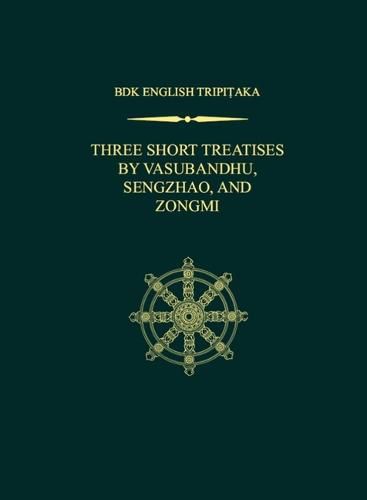Readings Newsletter
Become a Readings Member to make your shopping experience even easier.
Sign in or sign up for free!
You’re not far away from qualifying for FREE standard shipping within Australia
You’ve qualified for FREE standard shipping within Australia
The cart is loading…






Three Short Treatises collects brief and important explorations in Mahayana Buddhism. A Mahayana Demonstration on the Theme of Action is Vasubandhu’s meditation on karma, here translated from the earlier Chinese translation of Xuan-zhuang. The work presents a systematic view of various theories on karma from the perspective of the Mind Only school. Essays of Sengzhao presents four works by Sengzhao, an important disciple of Kumarajiva; the collection is said to have exerted considerable influence on later Chinese Buddhism, in part because it relates issues in Buddhist doctrine to traditional Chinese philosophy. The Treatise on the Origin of Humanity by Zong-mi explores the basis of human existence in the context of Confucianism, Taoism, Theravada, and certain Mahayana understandings-which he finds unsatisfactory-to present what he considers a true Mahayana view of human existence.
$9.00 standard shipping within Australia
FREE standard shipping within Australia for orders over $100.00
Express & International shipping calculated at checkout
Three Short Treatises collects brief and important explorations in Mahayana Buddhism. A Mahayana Demonstration on the Theme of Action is Vasubandhu’s meditation on karma, here translated from the earlier Chinese translation of Xuan-zhuang. The work presents a systematic view of various theories on karma from the perspective of the Mind Only school. Essays of Sengzhao presents four works by Sengzhao, an important disciple of Kumarajiva; the collection is said to have exerted considerable influence on later Chinese Buddhism, in part because it relates issues in Buddhist doctrine to traditional Chinese philosophy. The Treatise on the Origin of Humanity by Zong-mi explores the basis of human existence in the context of Confucianism, Taoism, Theravada, and certain Mahayana understandings-which he finds unsatisfactory-to present what he considers a true Mahayana view of human existence.